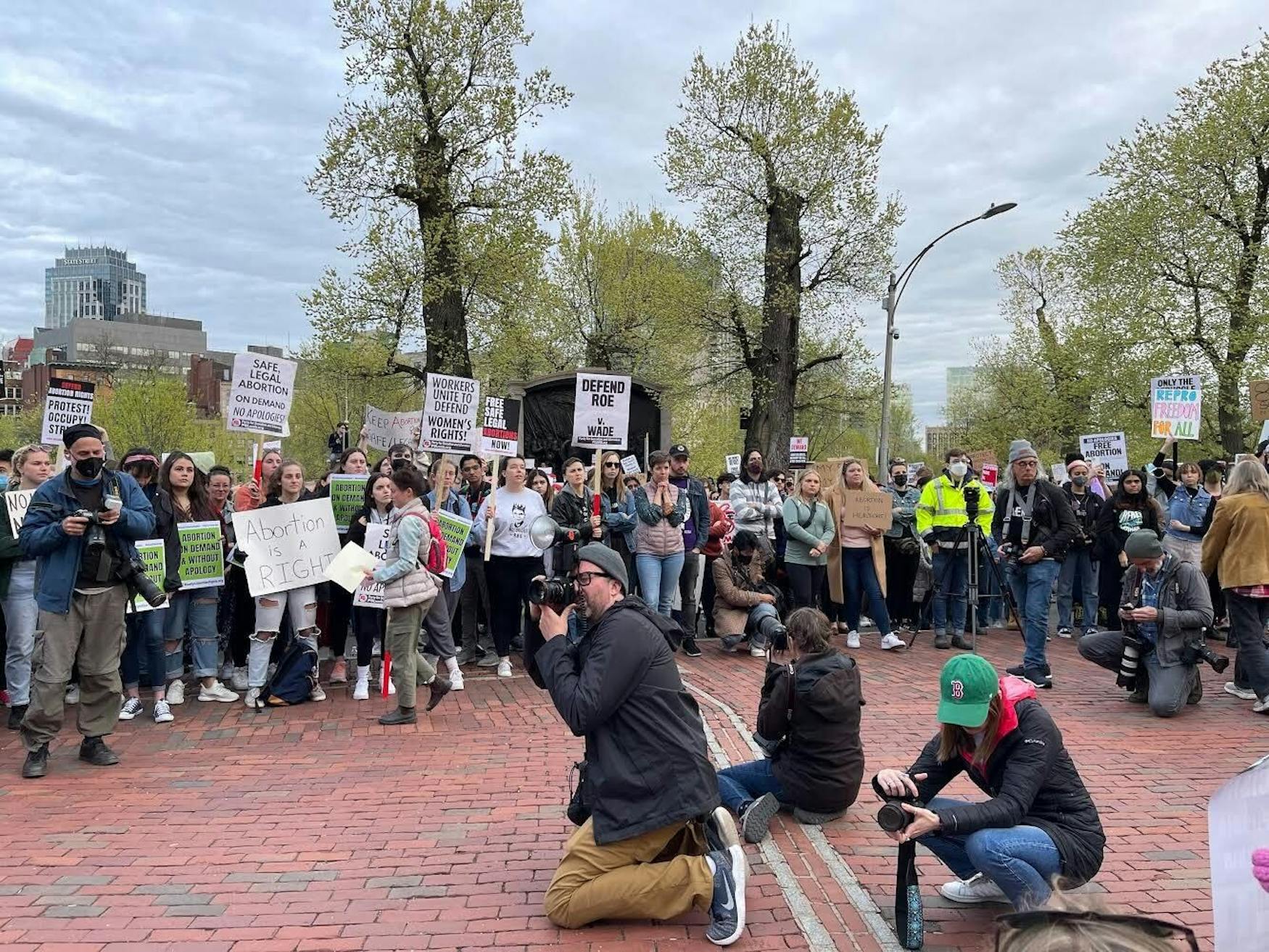Brandeis students and faculty engage in Roe v. Wade activism
Many students attended protests, and the Politics dept. hosted a discussion about the leaked draft and its implications.
Even amidst the bustle of the end of the semester, Brandeis students and faculty found time to get involved in the pro-choice movement after the leaked draft from the Supreme Court revealed a potential overturn of the landmark case Roe v. Wade.
Many members of the Brandeis community joined a protest at Boston Common and the State House on May 3. The protest came together with little planning, according to WBUR-FM, Boston’s NPR station, but the thousands of people who showed up to march on such short notice proved just how deeply the Boston community cares about upholding the current abortion laws and regulations. The rally included hours of speeches from activists, healthcare workers, and Boston citizens, at the front steps of the State House. Thousands of people gathered to march around Boston Common, chanting and holding signs.
Leila Haller ’25 and Sam Brower ’25 were among the dozens of Brandeis students who attended the protest, and they spoke to the Justice on May 15 about their decision to join the rally and what their experiences were like.
Haller described feeling “so genuinely outraged” when she heard about the leaked draft that “the second I heard there was a rally nearby, I made the plans to go. I felt like I couldn’t just sit around if I had the ability to show up and stand against the injustices happening in the Supreme Court.” Brower expressed that they too felt “it was important for me to show up … Roe v. Wade has not been overturned yet, and I wanted to show that it wouldn’t be able to without mass outcry.”
Brower recounted their experience at the protest, and that it felt “empowering to be there with so many people,” and Haller detailed that she “had chills the entire time. It is an indescribable feeling when you are standing in a sea of people, unified and passionate about a cause.” Brower expanded further on the importance of the protest and that the number of people who showed up to fight against the potential overturn “showed how the public opinion is in favor of the right to choose.”
Haller and Brower both learned more about the potential effects of the overturn from being at the protest. Brower explained that while the protest was empowering and inspiring, “it also made it feel more real and terrifying, seeing how many people would be affected by it in whatever way.” Haller spoke similarly: “[The speakers] literally brought tears to my eyes and proved how important it was to be there. Hearing from different women with varying backgrounds showed me how the decision affects so many people differently.”
Both Haller and Brower elaborated on their fear and anxiety regarding the future of abortion rights in the country. Haller stated that she has been dwelling a lot on this “total disregard for precedent,” and how it will affect future Supreme Court cases, “especially now that the Supreme Court is no longer an apolitical body.” Expanding further on this, she said that “the Supreme Court is not functioning the way it should, it’s not doing its job properly, and that thought worries me. Who is to say what happens next? It’s like everything is fair game now, our entire government is in serious trouble and we need to pay attention.”
Brower articulated similar feelings of anxiety, and touched on the importance of citizens coming together to fight for their beliefs: “I’m scared, not only for people who may want or need abortions in the future, but for all marginalized groups in this country, but I hope we keep showing up.”
The Politics Department also hosted an informal discussion to unpack the leaked draft ruling and to give students a space to ask questions about the potential overturn and express their varying concerns. Profs. Jill Greenlee and Jeffrey Lenowitz (POL), hosted the Zoom event on May 5, delving further into the draft and ruminating on what the future of abortion rights in the country may look like.
Greenlee and Lenowitz talked through why the draft may have been leaked, and elaborated on what the implications may be around the country if Roe v. Wade is overturned. They touched on various issues that can be found in the current functioning of the Supreme Court and discussed what any possible next steps may be. Students were also given the opportunity to ask any clarifying questions about the issue.
Even though this time of the year is often hectic, filled with finals, moving out, and wrapping up the semester, Brandeis students and faculty found ways to be involved in activism regarding the potential overturn of Roe V. Wade, both in the realm of protest and in the realm of education.



Please note All comments are eligible for publication in The Justice.